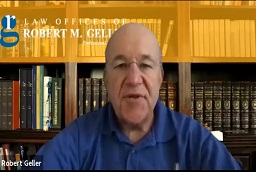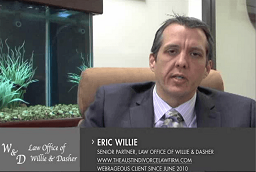Google Ads offers attorneys and law firms an excellent opportunity to stand out online.
Google processes around 3.5 billion searches every day. Often, when your clients are searching for help from a legal professional, they’ll start by heading over to Google.
Unfortunately, setting up successful Google ads isn’t always as simple as it seems. Google has been cracking down and rejecting a lot of ads that don’t follow its rules. If you’re not creating the kind of high-quality ads that Google experts want for customers, you won’t make it into the search results.

(Pixabay / succo)
Table of Contents
Why Are Google Ads Disapproved?
Google’s approval process for paid ads is more complex than most people realize. Google needs to determine that you’re not posting spammy or scam content online. The last thing Google needs is for customers to stop trusting its search algorithms.
Google will examine things like the keywords you’re using in your ad, the kind of landing page you send clients to (such as a consultation booking page), and the ad description.
Remember, Google wants to give customers the best possible experience online.
Knowing the most common reasons why ads are disapproved could help to ensure that your content measures up to the right search engine standards.
Common Reasons Your Ads Are Disapproved
There are various reasons why a Google Ad might be disapproved. Here are some of the most common issues that might affect your law firm.
1. Spelling, Grammar, and Formatting Errors
Search ads reflect the professional, high-quality experience that Google offers searchers. If the first listings a customer saw on the search results for “Local legal company” were full of grammar and spelling errors, that wouldn’t make Google look good.

Need Google Ads Management Help?
Free Google Ads account review for
qualified clients
Almost 20 years experience
Small grammatical mistakes like using a comma instead of a semi-colon won’t cause too many problems. However, obvious misspellings like “Legal Frim” instead of “Legal Firm” will lead to penalization. You should also be careful about how you capitalize words and letters in your listing. Failing to capitalize proper nouns or capitalizing letters at random will harm your search reputation.
To make sure your ad is ready to go, proofread before you publish. It might even help to get another colleague to check the ad and give you a second opinion before you move forward.
2. Problematic Copy, Punctuation, and Symbols
When you’re checking your ad quality, think about the reputation you’re trying to build. No-one’s going to feel comfortable about a law firm that uses the term “E-Z bookings” instead of Easy. Although Google does allow for some purposefully unique spellings, if your ad appears gimmicky. it won’t be approved.
Ideally, you should leave shortcuts and slang terms out of your copy entirely. Even if your ad gets approved, that language probably won’t send the right impression.
Be cautious with your punctuation and symbols too. Don’t fill your copy with lots of exclamation points, periods, or question marks. Stay away from non-standard symbols like asterisks and ellipses, and don’t add exclamation points to your headline.
Unique characters may seem like a good way to grab attention, but they rarely have the right impact on your audience, and Google doesn’t approve.
3. Problems with the CTA and Landing Page
Google doesn’t approve ad extensions that aren’t consistent with their clear, informational, and spam-free copy guidelines. Ads that contain generic CTA (call to action) content like “click here,” may be flagged. Instead, try using CTAs that are more specific, like “Get a free consultation now.”
Make sure your CTA leads to a relevant landing page, too. If clicking on your ad leads to an HTTP error code or shows DNS lookup problems, Google will instantly disapprove your ad. Before you publish an ad, make sure your landing page is live, crawlable, and free of any errors.
Your page should work on any common browser, be easy for customers to navigate, and load quickly enough that your customers don’t want to hit the back button. If there’s insufficient original content on the landing page, or the page doesn’t seem relevant to your ad, your chances of being disapproved will increase again. Don’t advertise free initial consultations with an attorney, then send your customers to your blog page.
4. Copyright or Trademark Infringement
Most legal professionals know all about intellectual property and how important copyright and trademark protection can be. If Google believes you’re infringing on someone else’s rights to control the publication, sale, or distribution of intellectual property, you will be disapproved.
Avoid using trademarked names of other legal firms or the services that they offer. Even if you’re comparing yourself to those companies to claim you’re better, Google could take this the wrong way. If Google does suspect a copyright infringement in your ad, you’ll need to resubmit, removing the trademarked copy and using a counter-notification.
It’s best not to take any risks with copyright infringement. Even if your ad got approved, you’d risk legal action from the other company.
5. Unsuitable Content
Finally, if your ad contains any mention of topics deemed inappropriate by Google, the ad will be rejected. For instance, you might want to talk about how you can help people avoid drug charges or fight back against a case where they’re accused of selling counterfeit products. However, mentioning these topics in your ad could get you flagged.
Check the prohibited content that Google won’t allow you to publish ads about and look for more subtle ways to describe your services. For instance, if you help your clients out with audits and tax issues, talk about “business related and tax services” rather than mentioning words like tax fraud and evasion.
Google will often decline ads that inaccurately describe where the user will end up. So be clear and transparent about what your customers might see when they click your ad.
Get Your Google Ads Approved
Google Ads are an excellent way to strengthen your law firm’s presence online. However, you can’t achieve the best results on Google if you’re not following the rules. Now you know which actions often lead to ads being disapproved on Google, you should be prepared to go and start producing successful ads for your business.
If you’re still feeling a little ‘meh’ about running a Google Ads campaign, contact a PPC specialist at Webrageous. We focus on PPC management for attorneys and can guide you throughout the process. Plus, our experts can help you identify the potential solutions for your rejected Google Ads so you can start reaching a wider audience.



















